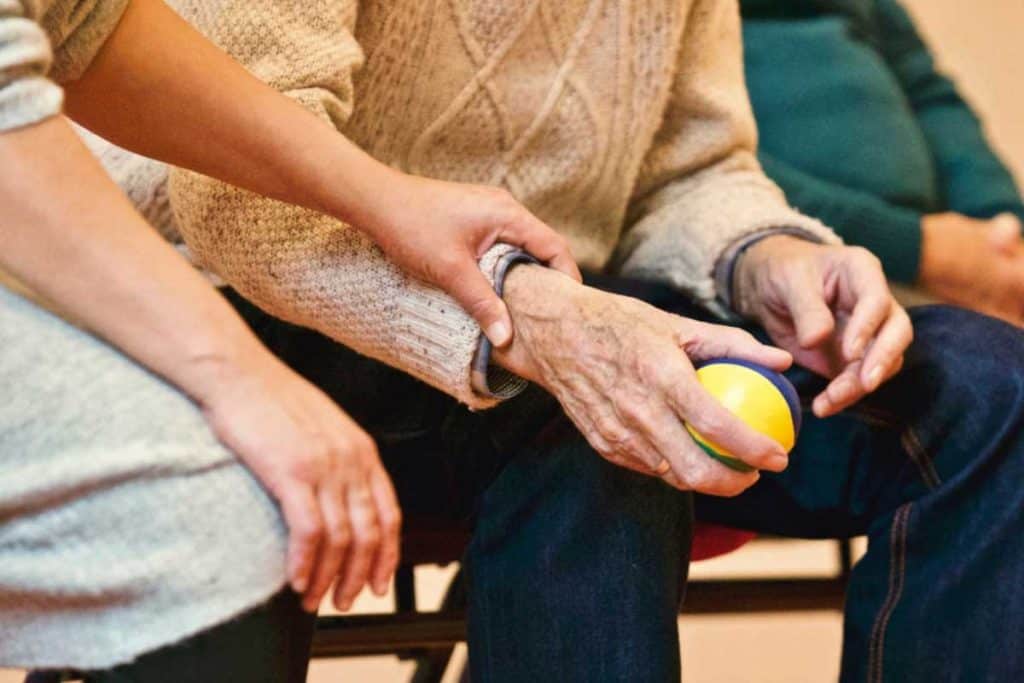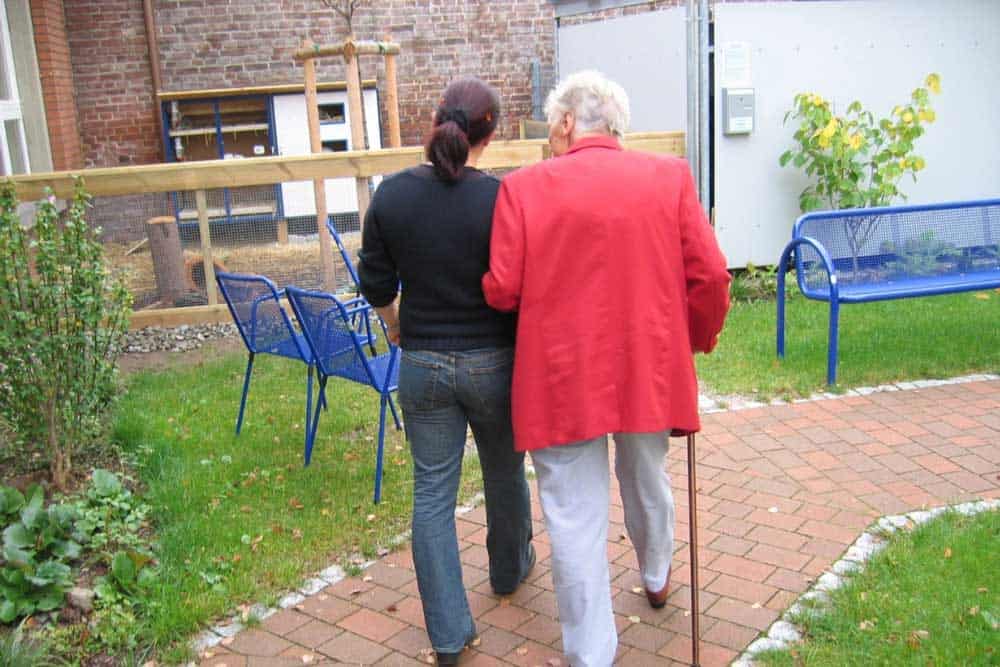
Alzheimer’s disease (AD) is a progressive brain disorder known to disrupt a person’s memory, cognitive abilities, and speech. It is known studied that Alzheimer’s affects sleep and may cause problems such as confusion, agitation, or nighttime talking and walking.
Learn more about their relationship in this article.

About Alzheimer’s and dementia in Australia
It is worth noting that Alzheimer’s is different from dementia. In fact, the latter is an umbrella term for conditions and diseases that affect the brain. According to the Australian Institute of Health and Welfare, there are one million Australians caring for people with dementia. It’s also the no. 1 cause of disability in senior Aussies.
All in all, there are over 340,000 Australian living with dementia. More than 50 percent of these statistics are people living with Alzheimer’s. Women tend to suffer more from the disease than men.
Alzheimer’s Australia reported that 10 percent of the population over 65 years old is affected by dementia. Meanwhile, a whopping 20 percent of seniors age 80 years old and above are suffering from the disease.
The group predicted that by 2050, the numbers for people living with dementia will grow by 25 percent.

How Alzheimer’s affect people and sleep
Alzheimer’s affects patients in various ways depending on their disease stages. Early stages of AD will have seniors waking up in the middle of night disoriented, while more progressive ones tend to wander during the night confused, scared, and agitated.
Most patients sleep more during the day and have difficulty resting at night. What’s more, they sleep longer than usual, thus disrupting their body clock.
Also, have you ever heard of the term, “Sundowning?” It’s a name described by many where the patient shows aggressive behaviors during late afternoons to evenings. Nobody knows why this happens, but sleep experts point to the fact that the behavior can be explained by tiredness or sleepiness, which causes the patient to breakout.
Heartburn and obstructive sleep apnea (OSA) are two common conditions that affect sleep for people with AD. As people grow old, their organs fail to function properly, hence giving way to acid reflux and failing nose congestions.

Symptoms of Alzheimer’s disease
Memory troubles are the first signs of Alzheimer’s. But how can you differentiate it with just forgetting? As we grow older, we tend to forget a lot of details from our younger life. But, Alzheimer’s causes memory loss and serious cognitive functions that interfere with a patient’s regular routine.
While it’s easy to forget people’s names, AD patients lose the ability to do basic washing, bathing, eating, or cooking. Progressively, they won’t be able to recognize family members, friends, and relatives.
- Forgetfulness and memory loss
- Impaired ability to process new information
- Declined comprehension and language skills
- Ability loss in doing basic functions like eating, bathing, or washing (dyspraxia)
- Aggression and agitation
- Often wandering alone and feeling lost
- Depression
Family and friends are the first people to see changes in a person. The patient might even change their mood and personality due to the progression of the disease.
Treatment and diagnosis
At the moment, there is no known cure for Alzheimer’s. However, there are medications to slow its progression and the patient’s aggression. Patients may benefit from antidepressants or sedating drugs, especially during sundowning.

Factors that place someone at higher risk
Research throughout the years has given people hope and understanding of why and how people develop the disease. While these are just some factors, some risks and reasons have not been explored yet.
Age. People are high at risk when they reach the age of 65 because of the decrease in brain activity, hormonal factors, lifestyle, and more.
Genetics. One gene that has increased the likelihood of getting AD is the APOE-e4 that affected 25 percent of most Alzheimer’s population. What’s more, if a family member develops Alzheimer’s, you are most likely to develop them too.
Cognitive impairment. Those with impaired cognitive functions are mostly to have dementia and Alzheimer’s. Common causes are medications, abnormality in blood chemistry, or hormonal imbalance. Other cases include psychiatric illness, substance abuse, and delirium,
Brain Injury. Especially with traumatic brain injury, head injuries can have a temporary or long-lasting effect on one’s thinking and mental capabilities. People with damaged brain neurons are at a higher risk of developing dementia and impairment of thinking skills. Injuries such as vehicle accidents or sports brain trauma can pose a risk for AD.
Poor sleep. In a study by the Washington University School of Medicine, sleep disruptions and low-quality slumber can further drive a person to suffer from AD. A lack of rest can have the toxic AD protein tau spread in the brain which leads to damage and dementia. Seen both ways, Alzheimer’s can induce sleeplessness, while poor sleep can speed up the disease.

Strategies for quality sleep among Alzheimer’s patients
Sleep is an issue many patients face after sundowning. Lack of sleep can further drive the disease deeper and make them agitated even more so. Here’s how to help patients sleep better at night.
Keep a regular sleep schedule. Encourage the patient to keep everything in schedule, including bedtime. These routine tasks will help them tire and wake at the right time. Unconsciously, they’re also building a habit of a regular sleep-wake cycle in their system.
Get some sunshine. Get some sunlight early in the morning and a brisk walk around the gardens. If this isn’t possible, try to get sunlight near the windows. It’s important to get that Vitamin D so it can reset their circadian rhythm.
Exercise every day. Exercise will keep their brains active as it brings healthy nutrients and oxygen around them. What’s more, keeping patients dynamic will give them enough energy to carry activities throughout the day – thus, reducing sundowning in the afternoons. Exercise will also make them happier and lessens agitation and aggression. Though you can’t exercise, plan activities for you and the patient.
Keep lighting deem if it’s time for sleep. The dimness of the bedroom allows the hormone, melatonin, to secrete and induce sleepiness. Make sure to create an ideal sleep environment where there are ample curtains, low nightlights, and security objects for the patient.
Create a sleep routine. Create a routine before bedtime to induce sleepiness. Allow your patient to take a warm bath or drink milk before he or she hits the bed. Avoid alcohol and caffeine. Not only it is harmful to the AD patient, but it can also increase wakefulness at night. Limit electronic lights and exercise at least three hours before bedtime.



